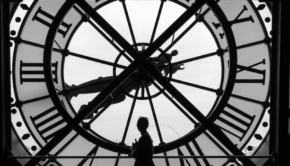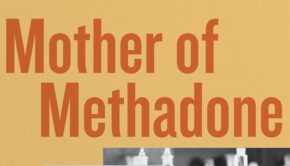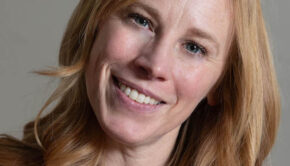First Kicking, Then Not: A Conversation with Hannah Grieco
I first met Hannah Grieco in the summer of 2020 in her capacity as the senior nonfiction editor for jmww literary journal. She connected with me after publishing an essay of mine on Black motherhood, and we soon developed a friendship that has grown beyond discussions of literary craft and parenting. In her newly published debut chapbook, First Kicking, Then Not (Stanchion Books), Grieco gives life to vibrant, wild, and uncontrollable women who hunger for more. With sharp prose that is at turns humorous and candid, Grieco is unflinching in her portrayals of modern-day women who crave and hurt and even run away from their established lives and marriages in search of something better.
While many of the short stories in First Kicking, Then Not focus on women from different walks of life, motherhood is a common underlying theme. Sometimes it hovers in the background where sexual exploration coincides with the arrival of a monster (the titular story “First Kicking, Then Not”), or it’s the catalyst to becoming the monster itself (“Out of Sight”). Yet, each tale, regardless of how harrowing or forthright, holds a kernel of liberation for the woman at its center. – DW McKinney
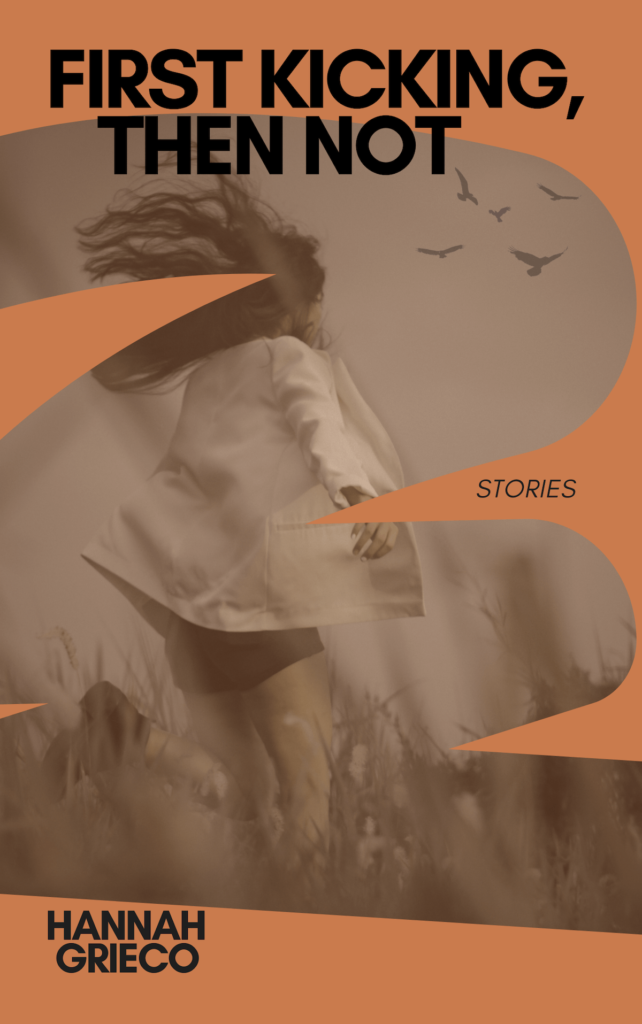
DW McKinney: Every woman in First Kicking, Then Not is trying to escape something. They seek escape through divorce, food, sex, or with physical distance, and their escapes are often dark or violent. What is it like to not write the archetypical, docile comfort of women when they’re trying to seek personal liberation?
Hannah Grieco: My lived experience as a woman is not a gentle experience. It never has been, and so I can’t even imagine a gentle “out” because being “in” isn’t gentle. In 2018, I participated in Listen to Your Mother, which is a storytelling event that happens on a stage. I told a story about my oldest child’s hospitalization in a psychiatric unit at eight years old. I told that story because I thought it should be told, but it didn’t click in my head that I had already written it. I thought I was performing on a stage with a bunch of other mothers at a mother event. Several people approached me after the event and said, “You should publish. You’re a writer.” So I turned that story into an essay, and The Washington Post published it. That was the start of my writing career. It was not a gentle piece of writing, but it was extremely cathartic to put it on the page instead of locking it inside me. It was really cool for people to read the essay and see me. Some people saw me terribly, but many other people saw me and were grateful.
When freelance writing, you have to keep the writing very surface level—even when writing about distressing and difficult things. The rules for the Washington Post essay were very rigid and confining. I shifted into literary work where those rules were expanding, and I could do more things, but the vibe of my storytelling never changed. I’m not a gentle person. I’m a storm. This is who I am, and so I’ve gotten used to that discomfort of being honest and vulnerable on the page.
DWM: One of the reasons why I like the stories in your collection is because they’re unhinged, but they’re also reflections of real feelings that I have in my real life. The stories show that it’s not just me. It’s probably every mother out there, but not everyone’s going to admit that they feel that way too.
HG: That’s the goal. I have very few filters. It’s been a problem my entire life. I’ll just talk to anybody about anything, and then everyone will be horrified and mortified by the things that come out of my mouth. Writing was the first time I could put this stuff on the page, and most people accepted it on the page.
I wrote an essay after I got my MFA at Randolph about the research I did in the program about the relationship between expressive writing and healing. How it helps with PTSD, how it’s been proven to be one of the most successful ways of treating PTSD, even more so than medicine and talk therapy. I didn’t realize I was already doing expressive writing until I conducted that research and discovered it. Expressive writing doesn’t have to be personal, true essays. It can be a short story about abandoning your children or about running away from your husband. It can be a story about turning into an actual monster because you hate your life on so many levels, like in “Out of Sight” where she’s turning into an actual monster, or at least she feels like she is, but no one else can see it. But even in that, that monster loves her babies. There’s so many layers to being a mother. You can love your children more than anything on earth and still hate certain lived experiences of being a mother, but you’re not allowed to say that.
DWM: How would you classify your stories?
HG: I write stories that are still realism, but I lean into literary speculative work. I rarely write stories that just couldn’t happen at all. Well, there is the bird story in “First Kicking, Then Not,” which is the most speculative leaning story in the collection. However, the events in book and what the protagonists are doing overall is wild. It’s way beyond normal. It probably isn’t a thing that would happen most of the time, but the goal was to write something unusual but not so bizarre that it’s totally untethered from your lived experience as a woman, as a mother, or as a caretaker.
DWM: There are many moments of monstrosity and horror in First Kicking, Then Not. What’s the relationship between horror and motherhood?
HG: Everything about motherhood is hard. Even the way I love my children is gross. I could devour them. I could eat them up. When I’m angry at them, I’m so angry because why isn’t parenting perfect and easy, right? Why aren’t I a better mother? Why are they so good and I’m the worst? Everything is extreme, and it’s horrifying.
I have to sometimes pause and recognize that my mothering in a situation is not the same as everyone else’s. I have a child who’s schizophrenic, and when I talk about some of those mothering experiences, especially from when they were younger, before I had any idea about any of this and what to do, people would just start sobbing as I talked to them. Our situation is normal for me now, but it wasn’t at the beginning. I hit rock bottom over and over and over again. It’s still very, very hard, but I’m a different person now. I embrace the monstrosity now, and writing helps me to navigate and accept it.
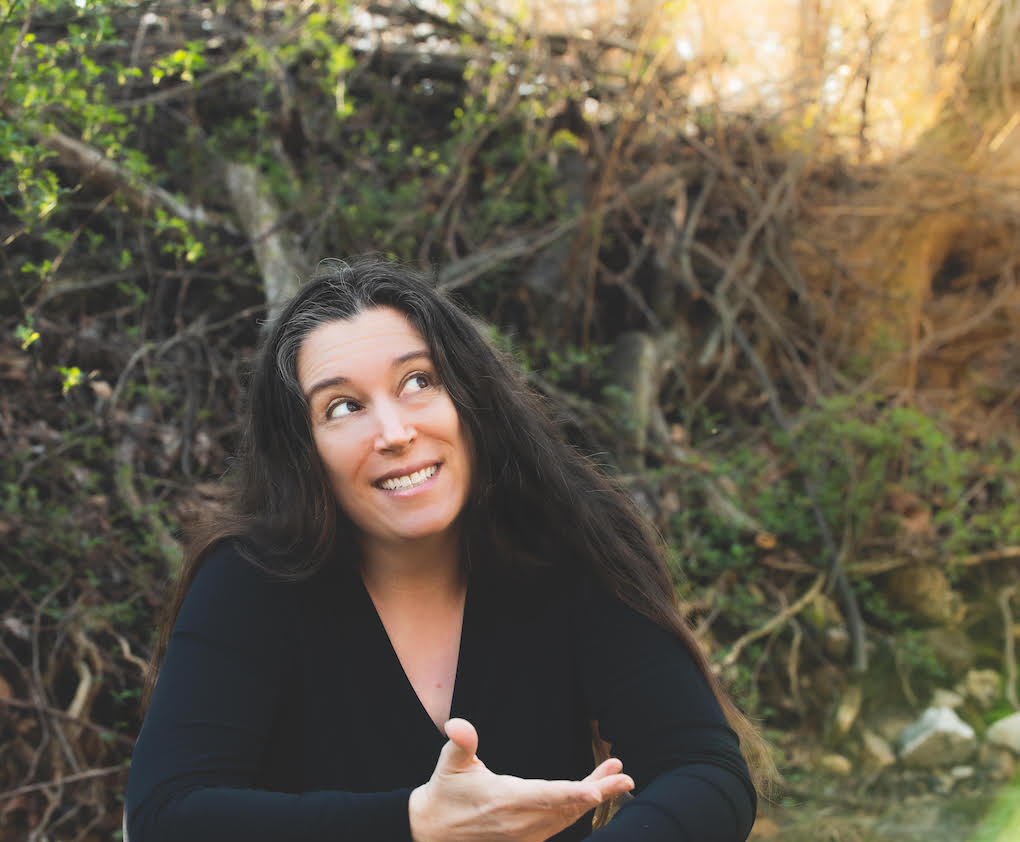
DWM: What do you think it would take for people, especially mothers, to accept talking about the tough parts of motherhood, the horrible parts, the monstrosities, the ugliness of it?
HG: I think we can make some inroads by publishing more books and making more movies about the tough parts. A little bit of that is happening, like with Nightbitch by Rachel Yoder. That book was fun, it was great, and then the movie came out, and people who weren’t writers thought it was horrific. For them, Nightbitch went too far at a time when our world was only ready for Barbie.
I don’t think we’re ready yet to see more of the monstrosities of motherhood, but a lot of mothers who aren’t writers bought First Kicking, Then Not and liked it. Moms on Facebook who friended me and told me they liked the book and saw themselves in it.
DWM: It seems like acknowledging the hard parts of motherhood happens in direct messages and texts and little secret messages sent by a raven but not out loud.
HG: True, but that’s okay. This past year, I started thinking more about how my readers change by the end of my work. Thinking about how I want my readers to be different at the end has changed everything for me. After a first draft is done, I think about what I really want the story to become.
For instance, the story “To Rest Her Feet, To Feel Like One of the Girls” is about a mom who drops her two babies at Starbucks and then runs off with the hot masc lesbian from the gym that she’s been fantasizing about. The ending is ambiguous. The reader is left thinking, “Did it even happen?” But in the course of the story, there are different perspectives from everyone else in her life about who a woman is supposed to be and you see the tiniest bit of the main character’s perspective at the very end. But by then, you don’t even know if she ran off or not. By the end, the story changes the reader’s perspective and I like that a story can change a reader by allowing them to encounter something no one likes to say out loud.
DWM: Quite a few of your stories incorporate sex, and they made me think about the current stereotype about middle-aged moms who read, which is that they only read smut and erotica.
HG: And there’s nothing wrong with that! I love to write about sex, but my graphic sexual writing receives significantly more pushback than anything else, which is interesting. There are a lot of rules in the literary world about what you’re supposed to write. I don’t think men get these rules, by the way. Historically, men will talk about women’s bodies graphically and badly, and no one cares. But when women start writing about sex, it’s not literary anymore, which is maddening.
I like to write about sex, but it’s messy. Sex when it’s real isn’t always good, so sometimes you’ve got to write about what you really are. Whether that’s being horny or missing the feeling of horniness, or what it’s like to experience sex while perimenopausal and you’re expected not to be a sexual being because you’re older and have served your purpose. Aging women are becoming less visible. Even the most progressive people still think that if you’re older then you’re not a sexual being anymore. That’s not true. We should be elevating those stories because there are readers who like reading about real people who are supposedly ugly or not socially conforming.
DWM: Many writers are trying to figure out how to write about our dystopian timeline. They think that their writing has to exactly be about what’s happening right now in the news, a direct one-to-one portrayal, but it doesn’t always have to be. How do you see First Kicking, Then Not being about our current timeline?
HG: Making literary art right now is a profound act of rebellion, and it’s more important than ever. Just existing, being who I am, is not in line with what direction our country is trying to go in. By the very nature of who I am and my writing, it is inherently subversive to that dominant narrative. I do think writing by its nature, when you are not following the rules, is subversive.
There are so many writers who know how to do this well, who are better than I am at being political without being overtly political. I recently enjoyed Megan Howell’s Softie, which is a short story collection with speculative literary horror elements too. Howell began writing the collection during Trump’s first administration, but she writes about him without mentioning him. By being honest on the page, as a young Black woman, she is subverting expectation and giving a giant middle finger to this country’s government. It’s inspiring and comforting to see a woman writing this amazing stuff, and it makes me want to write more subversive, interesting stories about women too. I want to be a part of that conversation as well, but I can only speak to my experiences. So, when I’m writing fiction, I want it to be distasteful, even deeply offensive to the people that I want it to be distasteful and offensive to.
Hannah Grieco’s debut short story collection First Kicking, Then Not is out now from Stanchion. She teaches writing at Marymount University, works as a private developmental editor and book coach, and writes a literary column for Washington City Paper. Read her work in The Washington Post, The Independent, Al Jazeera, Brevity, Wigleaf, Poet Lore, Shenandoah, Fairy Tale Review, and more. Find her online at www.hgrieco.com and on most social media @writesloud.


